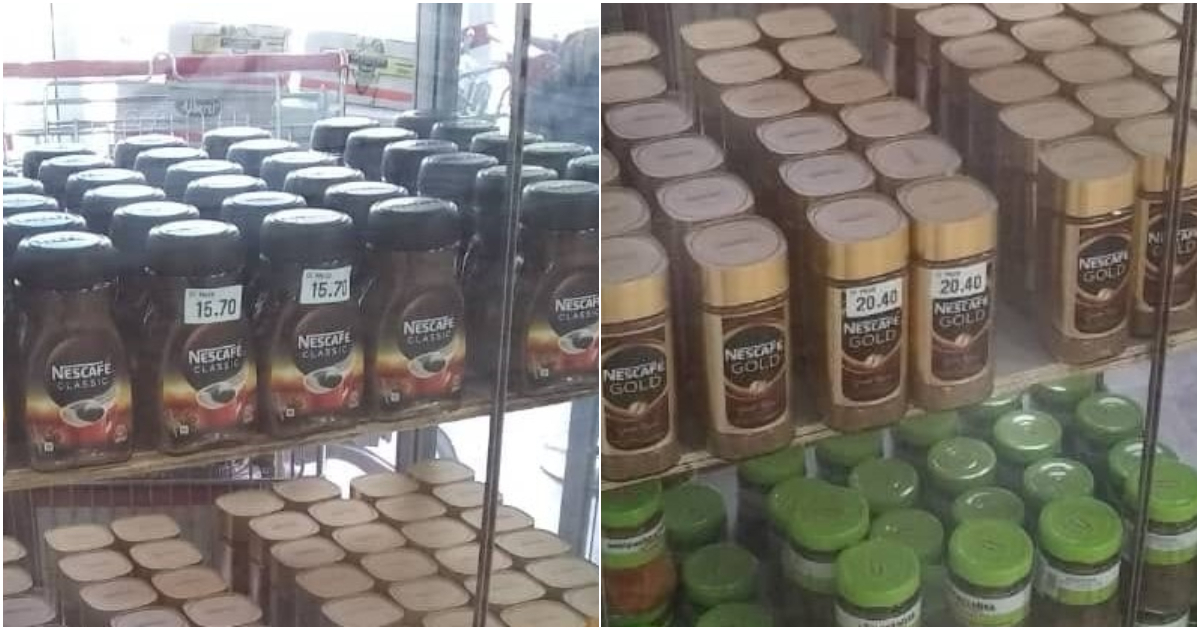
3 | 25/03/2021 – 15:44 (GMT-4)
Dozens of Cubans reacted indignantly to the price of Nescafé that the island government sells in stores in freely convertible currency, which ranges from $ 15.70 to more than $ 20 a bottle of 300 grams.
“This is the Palco shopping center. Please, if anyone knows what this Nescafé is made of, tell me. The price is so high that maybe it has a magic component or something and I’m half skeptical and that’s why I saw it expensive “, a Cuban woman posted on Facebook and attached several photos of the shelves where the product is displayed when she posted it.
In them you can see that Nescafé Classic – which in Mexico varies between 3 and 4 dollars depending on the amount per gram (70 and 96 Mexican pesos); in the United States it is $ 7.72 and in Spain it is less than € 5.98 (euro) – it costs $ 15.70 in Havana.
In turn, the 300-gram bottle of Nescafé Gold – which costs € 3.85 in Spain – is priced at $ 20.40.
Several internet users remembered that a few months ago, Nescafé 200 grams could be purchased for 3.75 Cuc, but the prices in dollars are now too high.
“They want to make millions at our expense,” said one Facebook user, while another joked, “God, maybe he’s ground gold.”
“No, more expensive than New York, with the poverty here and Dubai prices,” “No, not you, it’s expensive. Moreover, I think it’s better to buy it in Mexico, it’s cheaper, including the ticket and accommodation and shopping in USD 2 x1 “,” And in the US it’s worth a dollar and a little … so disrespectful “, are some of the comments.
“And what about the package of chicken breast that goes up and up without explanation, I do not know how far this will be,” “The problem is that they set the prices of resellers and the street they buy, take advantage of it, and That’s how they want to see all the live products, I don’t have an opinion because when something doesn’t suit me, I don’t buy it or look for other options, “said others.
In turn, an international advised not to buy the product to pressure the government to lower prices.
“That’s why he doesn’t buy it and he has to take it down. He releases the hot potato to see how many people put a tooth in it,” said one woman.
In the middle missing in Cuba, the government of Miguel Díaz-Canel committed to MLC fundraising Through exclusive stores where only people who receive remittances or work for foreign companies can buy, because the salaries on the island are paid in Cuban pesos, and the authorities do not sell USD in exchange offices (CADECA).
Last January, the regime began implementing the so-called “Ordinance Task”, which included a salary increase of up to 4.2 percent, but also included an increase in the prices of all products on the island between 5 percent. and 13 percent.
After this measure, Cubans make sure they earn more money, but they are poorer every day because their salary is less.
Recently, several families reported that the box of eggs on the island’s black market ranges from 250 pesos to 400 pesos. “A kilogram of milk powder like this: 250, 300, 400 pesos. Here in Central Havana, pork, when you find it, is 100 pesos per kilogram,” they said.
In her turn, the actress Ariana Álvarez shared her bewilderment with the high bill when she went from paying 4 Cuban pesos for her service to 100 pesos.
A survey conducted by the official Cubadebate portal On March 1, he revealed popular discontent in Cuba with the implementation of the economic reorganization and that the islanders categorically reject the new measure.
When asked if in the first 59 days of the year they managed to satisfy their needs with the new salary, 66% of the participants said that they failed to do so.
To the second question “Do you appreciate an excessive increase in the prices of products and services?”, 76% of respondents answered that “Yes, in all”; And 91% said that the increase in prices did NOT improve the quality of products and services.
The poll was removed from the official website a day later and so far the authorities have not said what they will do with the result, as it does not appear to intend to reverse the measure.